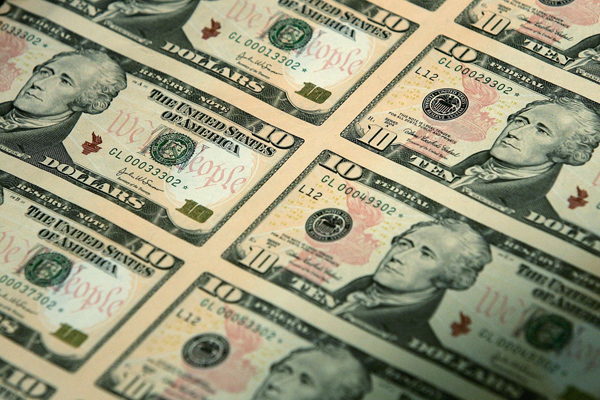The Central Bank of Egypt (CBE) allowed the pound to depreciate against the dollar during its regular auctions on Thursday and Sunday pushing it down to LE7.73, its lowest level since auctions began in December 2012.
This is the second round of pound devaluation with the first initiated at January 2014 and saw the pound losing six percent of its value and settle at LE7.53 where it stabilized for the last five months.
Devaluing the pound would help in increasing exports and foreign investments lured by a “fair valued” currency. However , a weaker pound would inflate the imports bill in a country that mainly depends on buying food staples and fuel from international markets . Inflation rate increased in May to 13 per cent compared to 11 per cent in April.
During the nine months ending in March Egypt’s exports declined $19.6 billion to $16.9 while the import bill increased by 6.3 per cent, to register $ 46.4 billion .
The move would adversely affect the parallel market as “it provides an incentive to parallel market traders to convert their holdings of foreign currencies to banks at rates close or higher than their purchase rate.” according to a Pharos Holding commentary.
The central bank began holding the dollar auctions in December 2012 in a step seen as a shift to a controlled free float.
The currency black market was negatively affected by the CBE’s policies including a cap on dollar-denominated bank deposits.
The rates at which banks are allowed to trade dollars are determined by the results of central bank sales, giving the bank effective control over official exchange rates.The auctions are held on Sundays, Tuesdays and Thursdays of each week.
According to a CBE ‘s decision in January banks can trade dollars up to 0.10 pounds more or less than the official rate, with an extra 0.05 pounds for currency exchange bureaus.
Analysts expect the bank to devalue the pound more as it is overvalued ” There is a chance that the CBE will allow further weakness to the LE8.0 per dollar mark to offset the stronger-than-expected appreciation of the EGP versus the Turkish Lira and the Euro over the past 12 months.” Noted Pharos .


